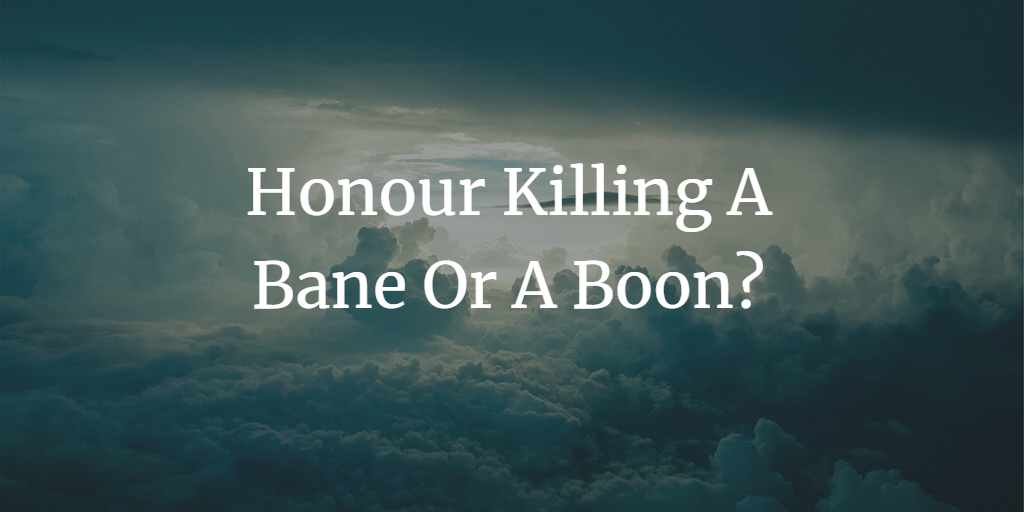Honour Killing A Bane Or A Boon?

Table of Contents
Introduction
What is Honour Killing?
The Prevalence of Honour Killings in India
Cultural and Societal Factors
Legal Framework and Challenges
The Need for Reform
Conclusion
Introduction
Honour killings, a heinous and deeply rooted practice in some parts of India, continue to devastate the lives of countless individuals and families. This article examines the disturbing phenomenon of honour killings in India, the societal norms that perpetuate them, and the urgent need for legal and social reform to eradicate this violent practice.
What is Honour Killing?
Honour killing is the murder of a person, usually a family member, by other family members or community members, who believe that the victim has brought dishonour or shame upon the family or community. Honour killings typically occur in response to perceived transgressions of cultural, religious, or traditional norms, such as inter-caste or interfaith relationships, premarital relationships, or refusing an arranged marriage.
The Prevalence of Honour Killings in India
While honour killings are not exclusive to India, they are a significant problem in the country, particularly in northern and western regions. Honour killings in India often involve caste-based violence, with victims predominantly belonging to lower castes. The actual number of honour killings in India is difficult to determine due to underreporting and the lack of a specific legal category for such crimes.
Cultural and Societal Factors
Honour killings in India are perpetuated by deep-seated cultural beliefs and societal norms that place a high value on family honour and reputation. Rigid caste systems, patriarchal attitudes, and communal pressures contribute to an environment where violence against individuals who defy societal expectations is not only tolerated but sometimes even encouraged.
Legal Framework and Challenges
Although honour killings are not explicitly mentioned in Indian law, they are punishable under various provisions of the Indian Penal Code, such as murder, abetment to suicide, and criminal conspiracy. However, the lack of a specific legal category for honour killings and the reluctance of law enforcement agencies to recognize and prosecute such crimes pose significant challenges in addressing this issue.
The Need for Reform
To effectively combat honour killings in India, a comprehensive approach involving legal, social, and cultural reform is necessary:
Legal reform: The introduction of specific legislation to address honour killings and the establishment of dedicated law enforcement units to investigate and prosecute such cases would help in the effective enforcement of laws.
Awareness and education: Public awareness campaigns, educational initiatives, and sensitization of law enforcement personnel are crucial in challenging the cultural beliefs and social norms that perpetuate honour killings.
Empowerment of vulnerable communities: Efforts to empower marginalized communities and promote social inclusion can help break down rigid caste systems and challenge patriarchal attitudes that contribute to honour killings.
Support for victims and their families: Providing support services, such as shelters, counselling, and legal aid, to victims of honour killings and their families can help them navigate the complex legal and social landscape and foster their rehabilitation.
Conclusion
Honour killings in India are a grave injustice that has persisted for far too long. To eradicate this violent practice, a comprehensive approach involving legal reform, public awareness, education, and community empowerment is essential. By addressing the deep-rooted cultural beliefs and societal norms that perpetuate honour killings, India can move towards a more just and inclusive society where individuals are free to live their lives without fear of violence and retribution.


